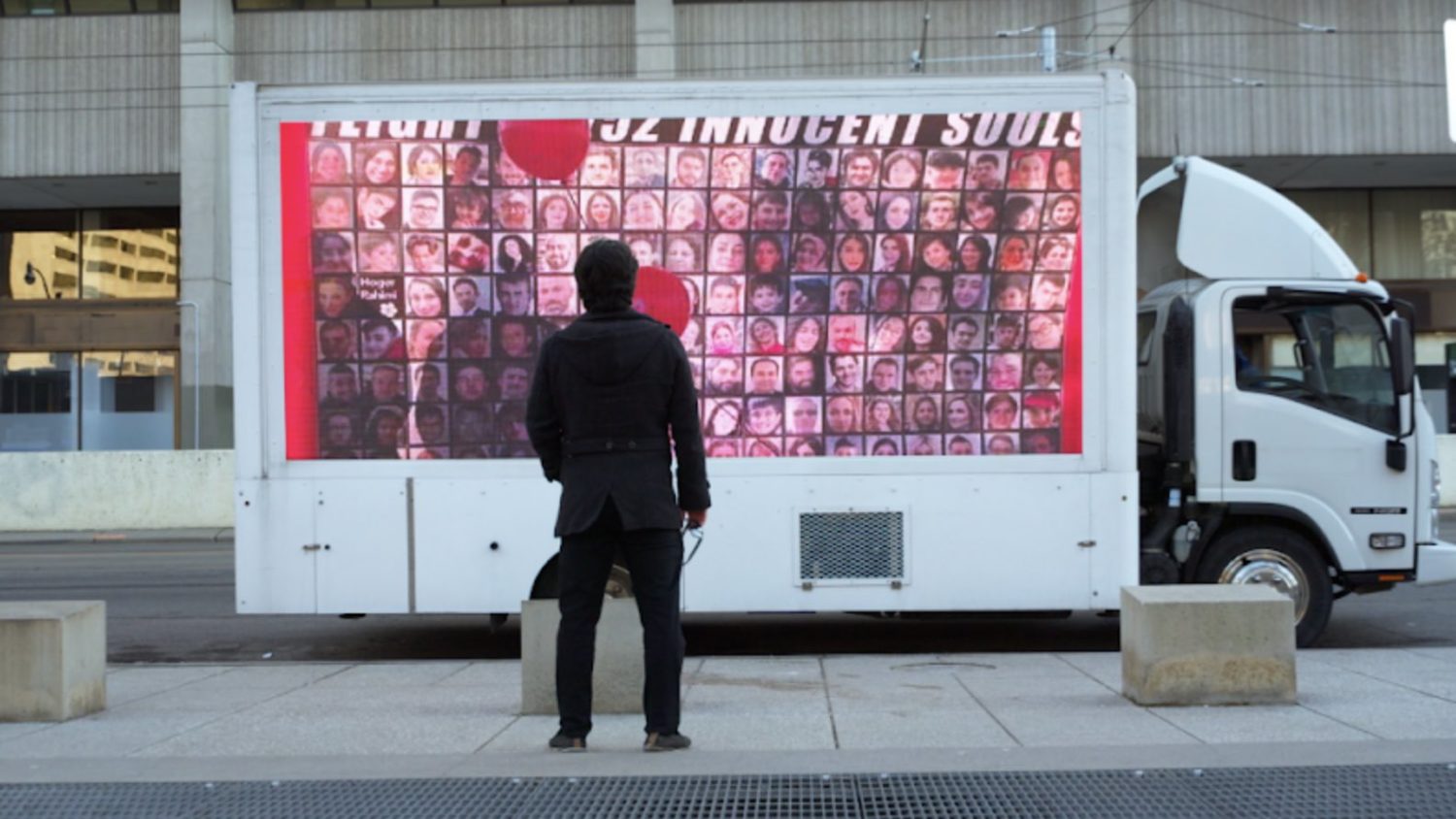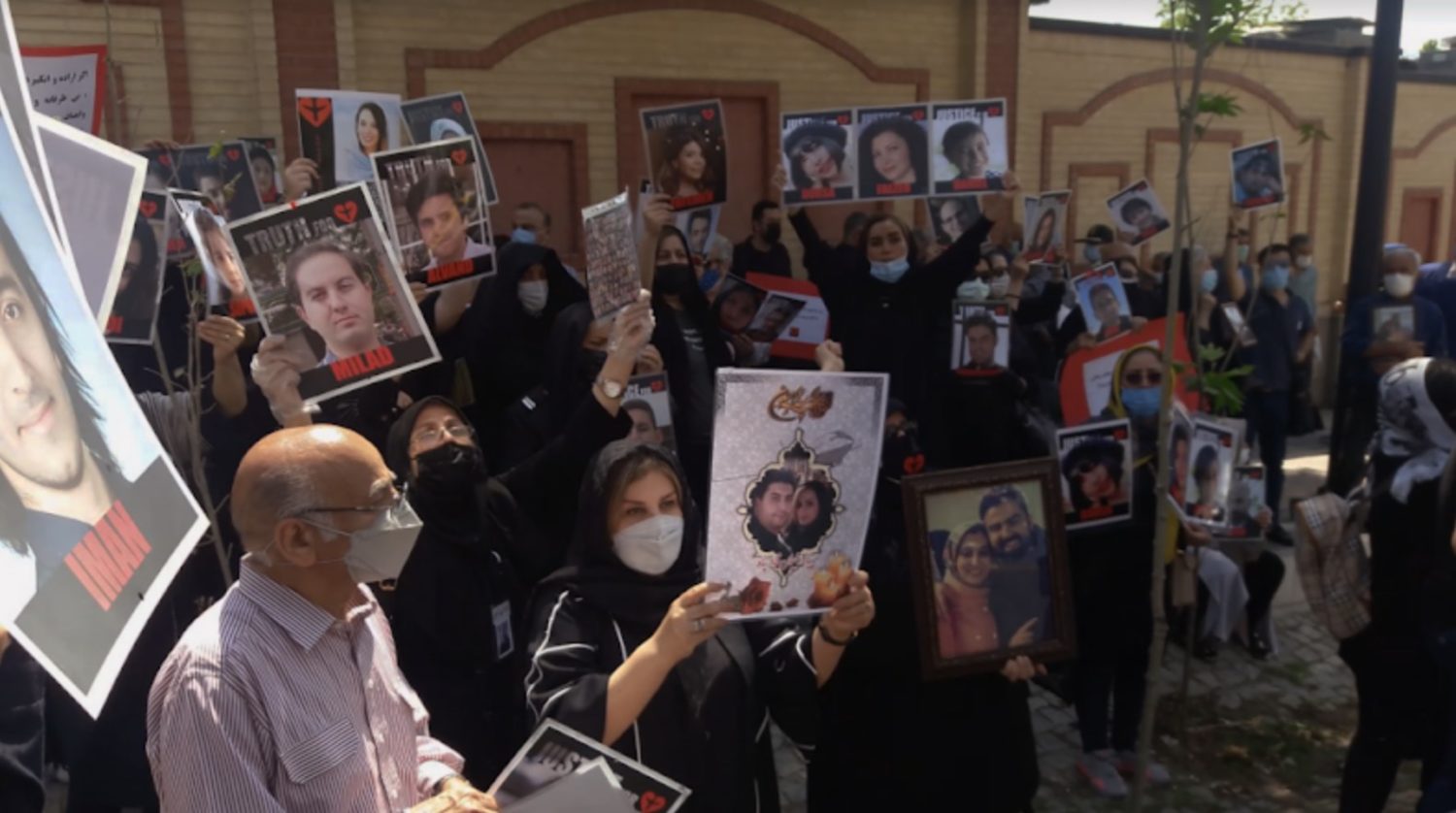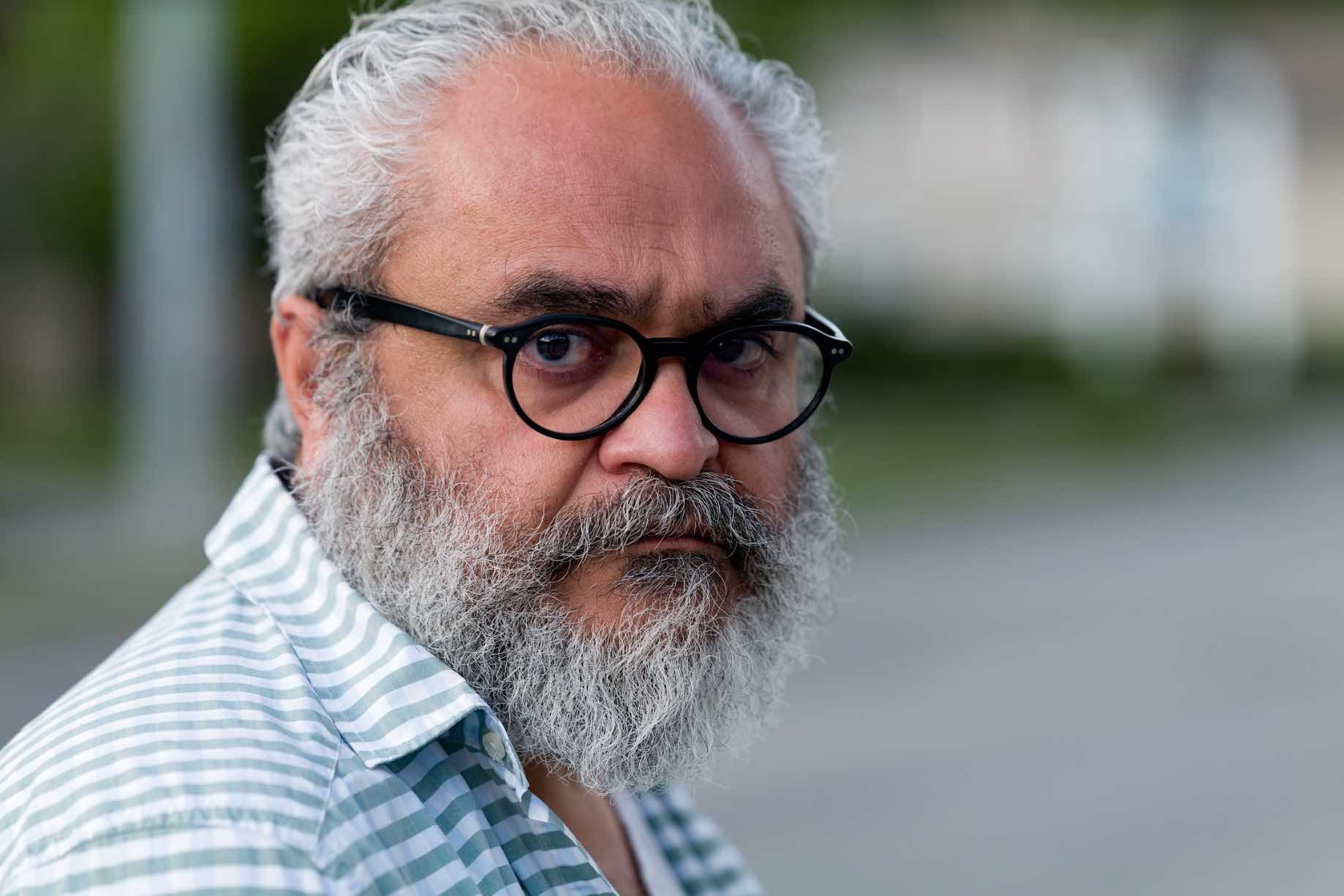
Babak Payami’s heartbreaking documentary is a prologue to a much longer story about the fight for lasting change in Iran.
On January 8, 2020, shortly after departing Tehran, Ukraine Airlines flight PS752 was shot down by an Iranian surface-to-air missile, killing all 176 people on board. Among the victims were the wife and daughter of Hamed Esmaeilion, an Iranian-Canadian dentist and author. Parisa and 9-year-old Reera were among the 85 Canadian citizens or residents who were killed. The missile, the world would learn, was launched by the Iranian military who admitted only after vociferous denials and obfuscations and the destruction of crucial evidence at the crash site.
Many in the close-knit community of Iranian expats in Canada had friends, colleagues or relatives who were on flight PS752. Among those was Babak Payami, an award-winning filmmaker who, having met Hamed Esmaeilion at the vigils and at meetings with Canadian government officials, began to document Esmaeilion’s heartbreaking search for answers. The resulting documentary, 752 IS NOT A NUMBER opens November 11th at the Lumiere Cinema at the Music Hall in Beverly Hills (buy tickets here).
LA WEEKLY: Your documentary offers a profoundly intimate chronicle of Hamed Esmaeilion’s heartbreak and his unrelenting quest for truth and justice. How did you meet?
Babak Payami: Hamed took the first flight to Tehran hours after learning the terrible news. I was contacted by a mutual friend to help organize and facilitate communication with the Canadian officials. I was liaising with the Canadian government and helping to arrange DNA tests for victim identification in Iran. Within three days, when it was confirmed that the flight was shot down by the Islamic Revolutionary Guards, Hamed was determined to return the remains of his wife and daughter back to Canada. We quickly arrived at the conclusion that the story of Flight PS752 would need to be documented.
The film 752 IS NOT A NUMBER was the by-product of my increasing engagement with Hamed and his plight. I had been planning to work on a new film, but before I knew it, all of my plans weren’t even on hold; they just faded away. Hamed is a novelist, I am a filmmaker and it was inevitable that our relationship and his struggle to cope with this devastating heartbreak be documented in real time.

LA WEEKLY: He must trust you completely to allow your camera access to his worst moments.
Babak Payami: Hamed and I have a deep understanding on many things, including the fundamental fact that there can be no justice without the truth. There’s a famous cardinal rule set out by Werner Herzog that says when you’re making a documentary, you shouldn’t get involved with the subject matter. Well, that went out the door within minutes after Hamed and I met.
I knew right away that this was possibly the most important film I would ever make. I could not be just an observer; I was a stakeholder in his story as it was unfolding. In his devastation, Hamed was hesitant. He would just recall memories of his wife and daughter and gradually, we both came to the conclusion that whatever that was happening, must be recorded in history.
The Covid isolation created a unique intimacy between us. The fact that I couldn’t have a crew helped to enhance that intimacy and shaped the aesthetics of the film with a sense of raw, emotional immediacy. I knew I wasn’t just making a film; I was a fly on the wall alright, but that of a smoldering oven of raw emotion and pain. It was too hot to stay on the wall and I fell into the core of that oven struggling to survive emotionally myself. The trust came from that shared feeling. A few days later we moved in together on the second floor of his dental office and spent the next two and a half years together.
LA WEEKLY: 752 IS NOT A NUMBER world premiered at the Toronto International Film Festival in September, just days before protests in Iran would erupt over the suspicious death of Mahsa Amini while in police custody.
Babak Payami: Hamed and I, along with the rest of the victims’ families knew all too well, that flight PS752 is another link in the 44-year chain of crimes and atrocities committed by the Iranian regime. They were trying to communicate with the world that what happened to them, could happen to others. They were struggling to make the Canadian government officials understand what they are dealing with and that the regime they are negotiating with has no regard for the rule of law or human rights. That was an uphill battle for them because western governments refused to acknowledge the true nature of the Islamic regime in Iran. On the other hand, other interests, as well as a warped view of diplomacy complicated things. The law and diplomacy seemed to be the goal whereas Hamed and the families were trying to make the world understand that they are the means to justice, transparency, human rights and accountability.
When the recent revolt in Iran was triggered by the murder of Mahsa Amini, it felt as if the world is waking up to the real plight of the Iranian people which the PS752 victims’ families were a part of.
In my film, the war in Ukraine is a climactic turning point for Hamed and the families as they felt they were getting close to finally starting the legal process under the auspices of an impartial international court. Hamed’s last words in the film is “I will never give up…” and that I believe, is what resonates with the Iranian people.

LA WEEKLY: There were some high-profile arrests for Iranian filmmakers this summer. Does this feel close to home for you?
Babak Payami: What’s happening to Panahi, Rasoulof and others now is not unique. Years ago, I was arrested on the streets of Tehran by the notorious plain-clothed agents of the Islamic Republic of Iran security forces. Jafar Panahi and I were running some errands in his car on a hot summer day when we were swarmed by agents. Within minutes, I found myself in the back seat of an unmarked car with two agents on either side. My offices were raided, and everything except the furniture was confiscated. Jafar found where I was being held. He called my father, and together with some other friends, they held a vigil outside of the building asking for my release. My film was confiscated, and I was lucky to be able to leave heartbroken, that I may never see my native country again. That was 19 years ago — and unfortunately nothing has changed.
LA WEEKLY: What do you hope to achieve though 752 IS NOT A NUMBER?
Babak Payami: The most important thing for me, is to make sure the story of flight PS752 is never forgotten. The film demonstrates that justice is as much in the resolve to continue to fight for it, as it is in the results that journey may or may not bring. Hamed’s journey in the film, is symbolic of the painful journey of a nation that yearns for justice and human rights.
We live in a cruel world where there’s always a tragedy happening. People get desensitized, especially in the context of Iran, where not a month goes by where something tragic doesn’t happen. 752 IS NOT A NUMBER is a raw, intimate, and urgent depiction of one man’s story that must not be treated as just another statistic, otherwise it will blow up in everyone’s face like it did in Ukraine.

LA WEEKLY: Hamed Esmaeilion and the families of the victims of this tragedy have been searching for answers for almost 3 years. It is hard to imagine what that must be like. Or difficult to imagine without seeing it so clearly in your film.
Babak Payami: One of the very first sentences I wrote in my notes on the film, that is in the narration of the final film is “Ordinary people who are thrust into extraordinary circumstances…”
Much like the rest of the victims’ families, Hamed has displayed an amazing sense of dignity and resolve in the face of crushing devastation. They have transformed grief, rage and pain into a dignified resolve to fight for justice not only for themselves, but for all the victims of the Islamic regime in Iran. Along this painful journey to hold the Islamic Republic of Iran accountable, they have changed the narrative that the western governments such as Canada’s were following and posed the most pressing question to the world; How do you negotiate with a regime that murders its own citizens?
Hamed and the families of flight PS752 victims are not only holding the Islamic regime in Iran accountable, they’re also holding western democracies to account on the most fundamental issues of justice and human rights.
Watch the Official Trailer:
Advertising disclosure: We may receive compensation for some of the links in our stories. Thank you for supporting LA Weekly and our advertisers.
